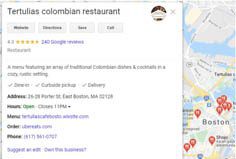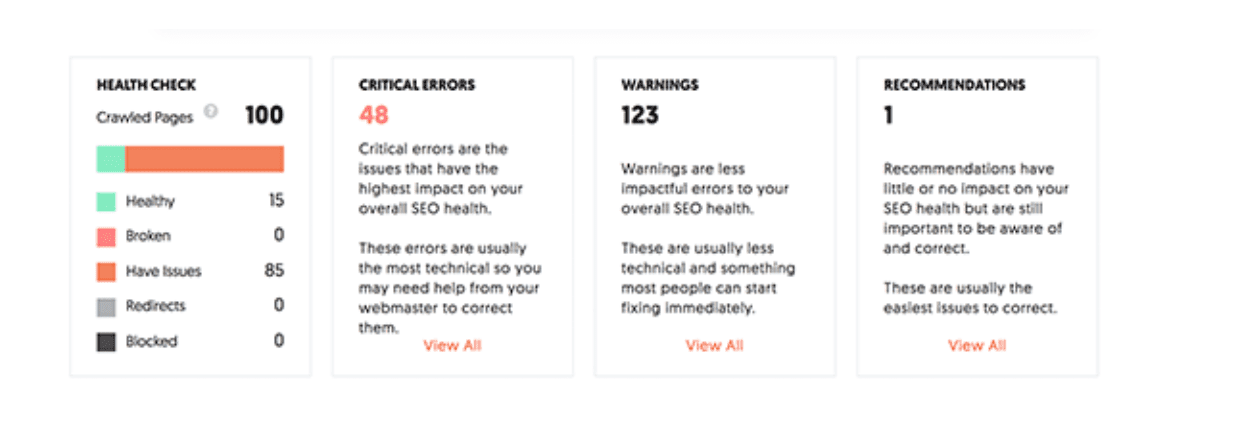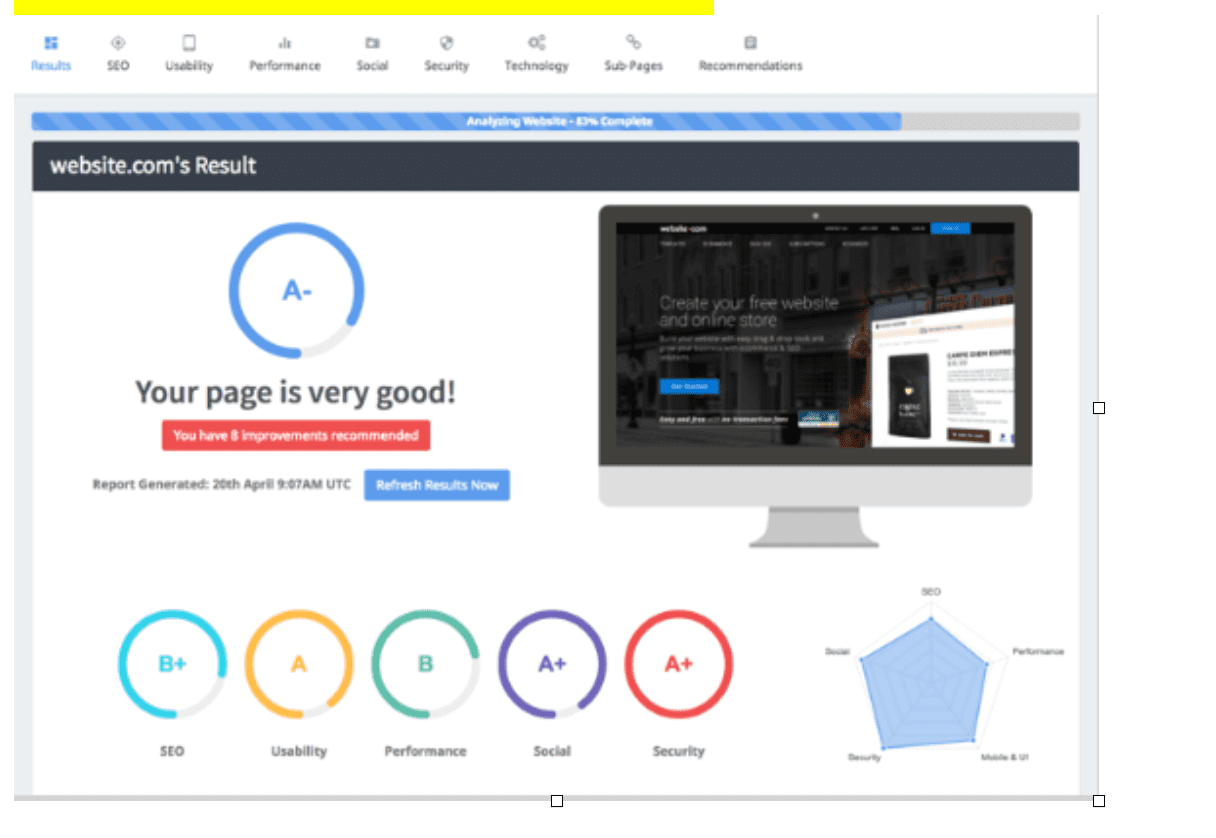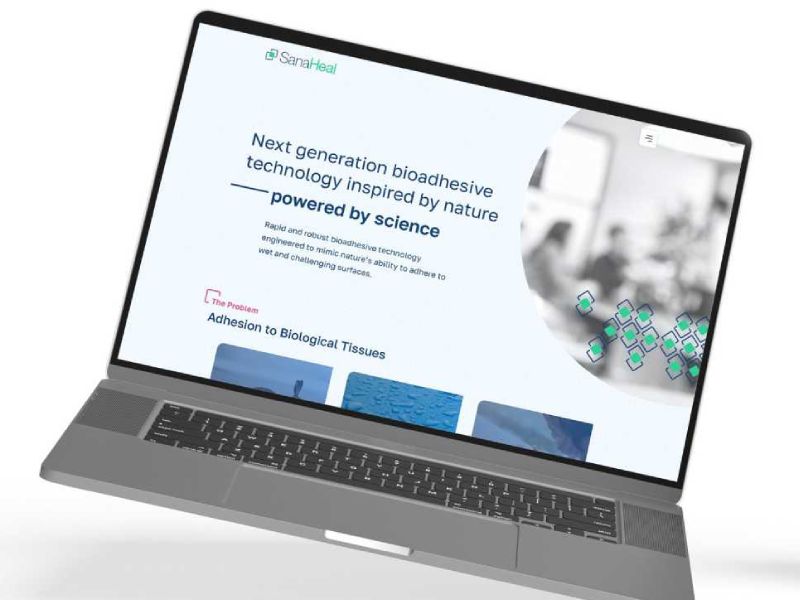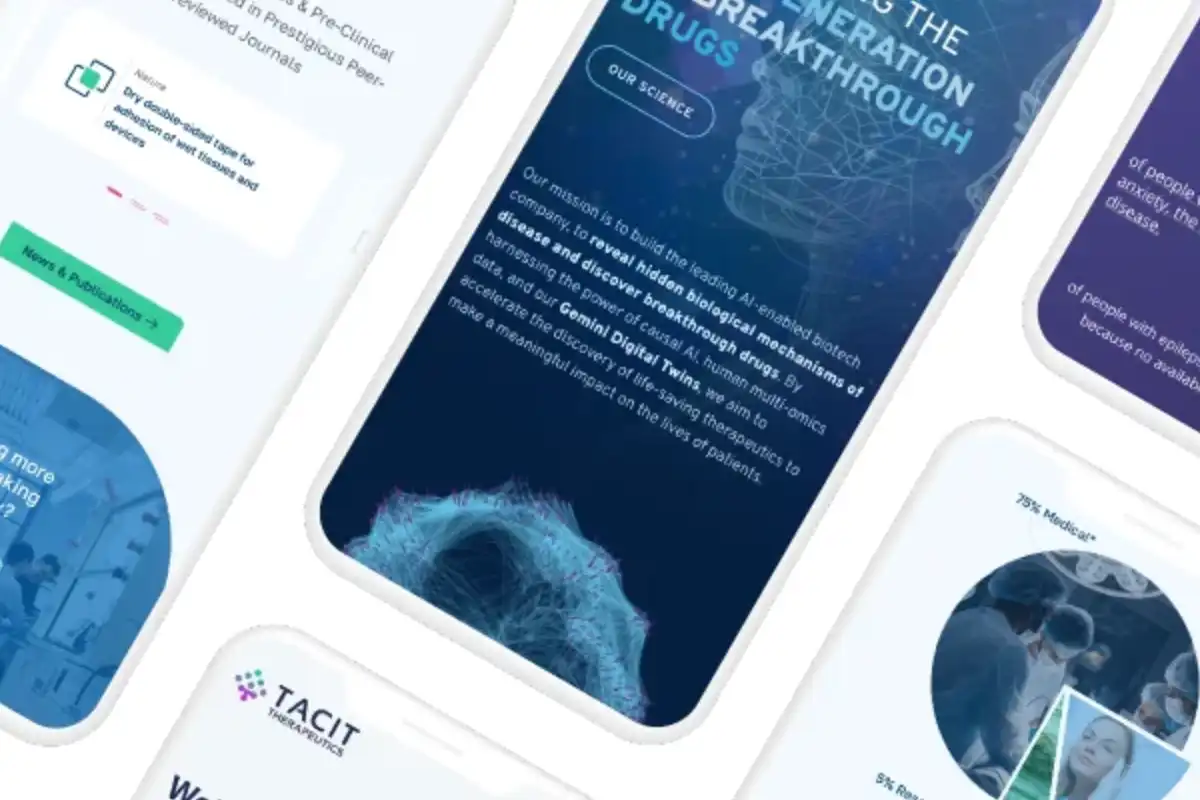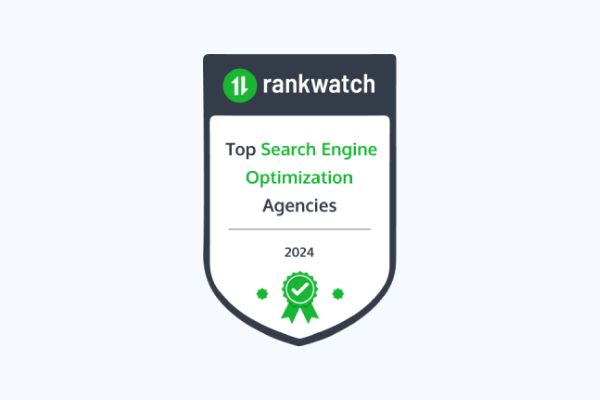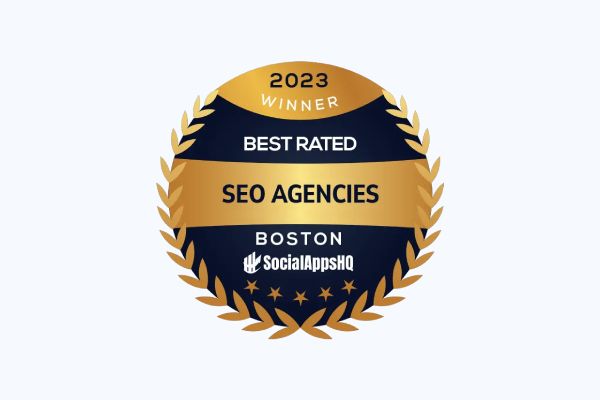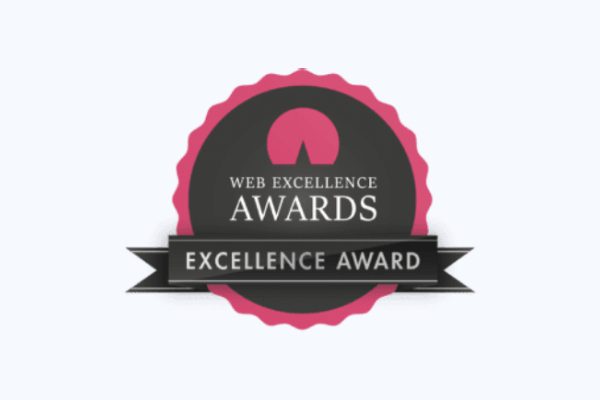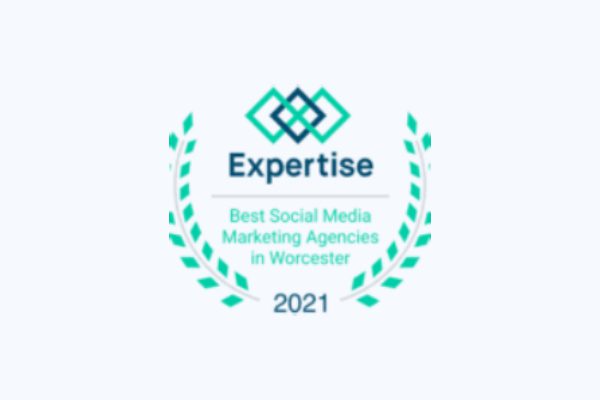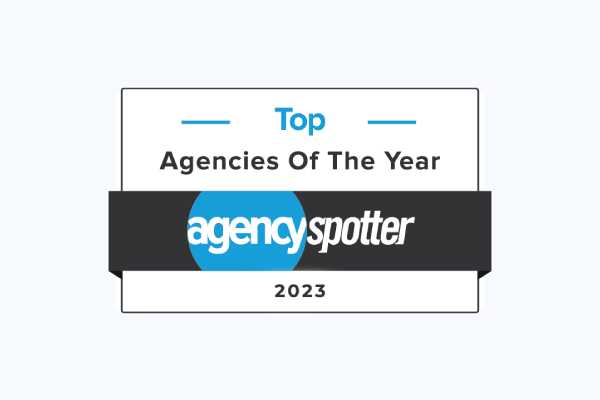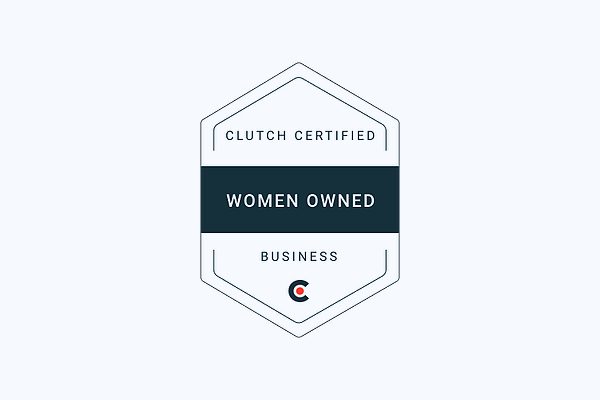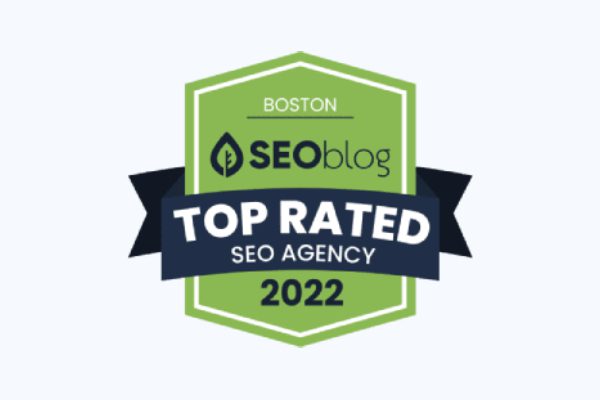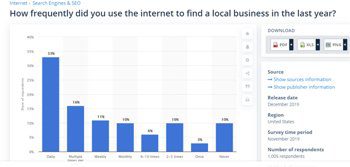 What exactly is Local SEO or Local Search? Well, you hear the same thing whether you’re buying a house or renting a retail location—it’s about location, location, location. The same is true when your potential customers do an online search for a business like yours.
What exactly is Local SEO or Local Search? Well, you hear the same thing whether you’re buying a house or renting a retail location—it’s about location, location, location. The same is true when your potential customers do an online search for a business like yours.
Recent reports have shown that 64% of customers use local search engines and directories as their main way to find local businesses, and a whopping 78% of local mobile searches result in offline purchases. This situation arises day in and day out, with 33% of searchers going online daily to look for local business, and 16% looking online multiple times per week. (source: Search Engine Land).
The implication is clear. If your business can’t be found on a Google search, and your competitor’s can, you’re in trouble. Even if your clients don’t visit you in person, many still look for local services—it’s an instant connection that builds trust.
Luckily, there are ways to bump up your local search results as part of your marketing strategy.
How can you make the most of local SEO or local search?
There are three basic ways to improve your local search results. The easiest method is with Google My Business (also knows as Google Maps). Following that is the use of citation or directory based websites. And the most challenging method is to improve SEO—appearing in search results without paid ads.
Looking at these methods in detail will show how you, in partnership with a website developer or digital marketing or web agency, can make the improvements needed to be a local search champ.
Here are an overview and suggestions for leveraging these three methods:
1. For Local SEO Signing up with Google My Business (Google Maps) is easy and effective.
Google My Business (Google Maps) may seem like a little thing, but it can be quite important because it appears on the first page of search results. The rest of the first page is mostly taken up by paid ads. Unless you’re in the map listings or have an ad, it’s nearly impossible to get on that first page. This matters because, according to Moz, the first page captures anywhere from 71% to over 90% of clicks.
Although it’s easy to sign up on maps, many businesses don’t—so it puts you one step ahead of your competitors.
So how does Google My Business (Google Maps) work?
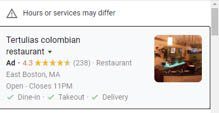 Businesses listed on Google My Business (Google Maps) are ordered by relevance to the search term, distance, and prominence (how well the business is known online and off). A few businesses are listed on page one, followed by a “view all” button which brings up additional listings. Each listing looks something like this listing from a search I did on “Boston Restaurants.”
Businesses listed on Google My Business (Google Maps) are ordered by relevance to the search term, distance, and prominence (how well the business is known online and off). A few businesses are listed on page one, followed by a “view all” button which brings up additional listings. Each listing looks something like this listing from a search I did on “Boston Restaurants.”
Click on the business name and you see a new box more complete information (see below). This information is provided by a business when it sets up its Google Map listing (so make sure you complete as much information as you can on the Maps form).
As you can see, there are buttons that link to your website, give directions, allow you to save the business to a list, and call them. These clicks are considered backlinks, an important factor in your SEO ranking.
SEO is not for Dummies: Why you Need to up your SEO Game and How to Do it.
For greater interest, you can add other items to your listing as well, such as more photos and logos.
Here’s Wikipedia’s definition: “A backlink for a given web resource is a link from some other website to that web resource. A web resource may be a website, web page, or web directory. A backlink is a reference comparable to a citation.”
You can enhance the effectiveness of your Google My Business/Google Maps listing by asking your customers and business partners to give you reviews, which will result in more clicks, more business, and more valuable backlinks to your website.
This also gives you new opportunities to interact with valued customers, which you can further build on by sending reviewers a gift card or other reward. Another plus is that you can repurpose reviews by using them as testimonials on your website or social media pages.
2. Leverage local citations to extend your local SEO and search efforts.
A local citation is any online mention of the name, address, and phone number for a local business. Citations can occur on local business directories, websites and apps, and social platforms. Citations help Internet users to discover local businesses and can also impact local search engine rankings. Local businesses can actively manage many citations to ensure data accuracy. (source: Moz)
Once you have your Google My Business/Google Maps listing under your belt, you can move onto the next step: citations (or directories), which influence your ranking for local search and the ease with which searchers can find you.
You can look for different types of directories to sign up with. Examples include business directories, geo-specific directories like your Chamber of Commerce, industry associations, and phone listings such as Yellow Pages. Inclusion in many are free, some are paid, and others come as a benefit of joining an organization. While there are hundreds of directories, it’s fine to start off small—maybe with your top 10 choices.
Google rates citations based on accuracy, reputation, and revenue. Having inaccuracies will also detract from your score, making it important that key information, especially business name, address, and phone number, are consistent across the board. If anything changes, such as your address, change it on all your citations, as well as your other digital assets.
Another tip is that, since Google rewards fresh content, you can update or make additions to your citations every month or so, such as with new pictures or information about your team. If you get overwhelmed, you can get a citation management tool that will update all of your citations automatically.
You can find out more about citations on here from MOZ.
3. Organic Search can lead to big results for Local SEO but takes the most effort and expertise.
As opposed to paid ads, organic search is based on how valuable Google thinks a webpage will be to the searcher. Your website needs to be optimized for location with SEO techniques so that search engines can find your business when someone searches on your locality.
It’s important to do it right, however, or you can cause more harm than good.
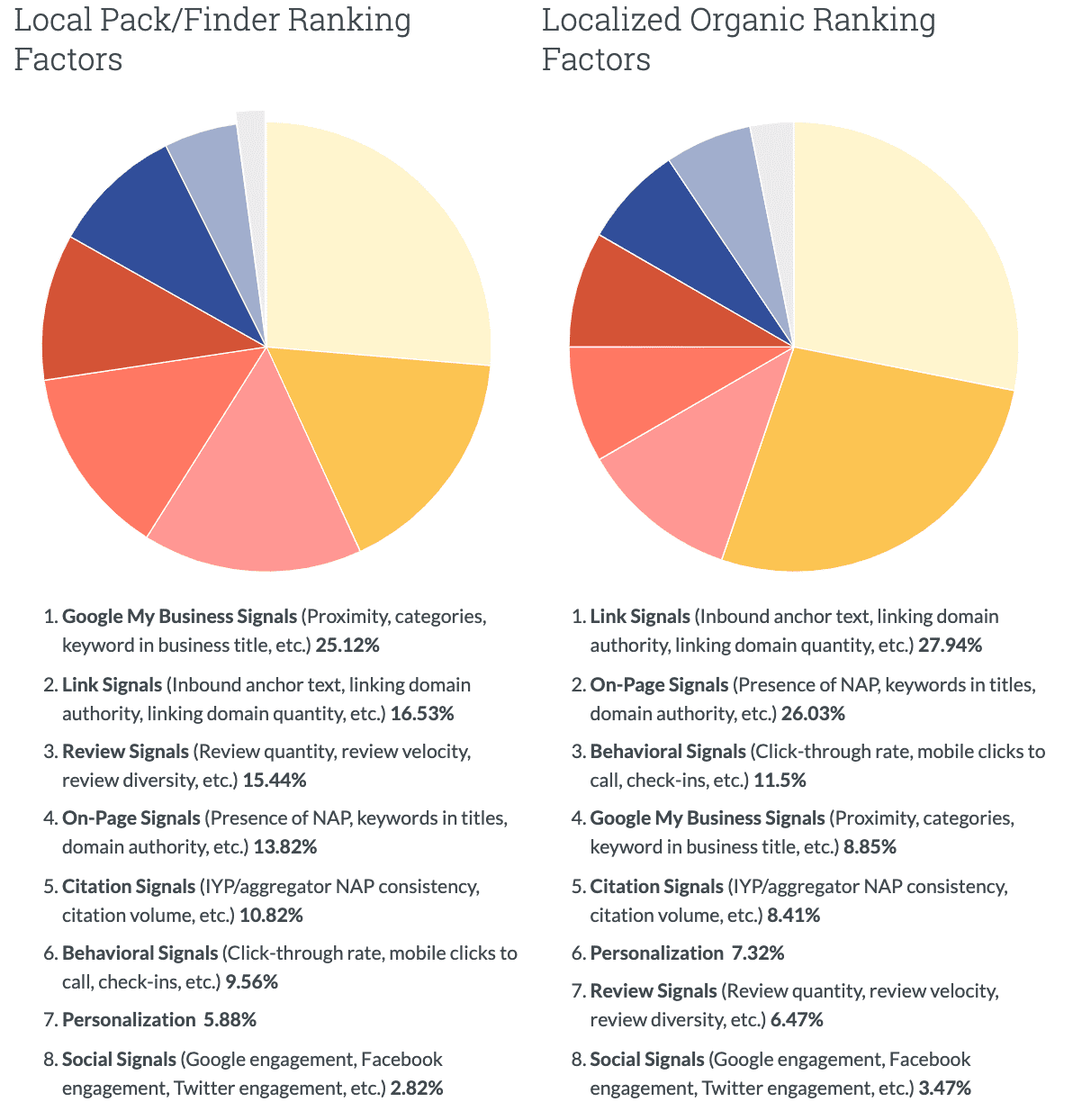
Some essential ways to optimize your site for local SEO or location search include:
- Website Footer: Include your location in that footer on each webpage
- Contact Page: Provide local information designated contact pages. Google loves content, so feel free to beef up your contact page with items like testimonials and reviews.
- Schema Markup of location data: Search Engine’s definition of schema markup is “a form of microdata. Once added to a webpage, schema markup creates an enhanced description (commonly known as a rich snippet), which appears in search results.” This is another activity for your web developer.
Here’s where you can find out more about schema markup.
- SEO Analysis: A website scan can be performed to catch technical issues that diminish your organic ranking—such as inaccurate or inconsistent location data. If your website doesn’t have a comprehensive SEO plugin like Yoast, there are free analyzers available, such as Neil Patel’s SEO Analyzer. It provides an overall health check on items like broken links and redirects, as well as details on critical errors, warnings, and recommendations. Your results will look something like this:
- SEO Optimization: An optimization tool can give you insights about how to make better use of your location data. Again, if you don’t have a tool like Yoast, Neil Patel has this handy free SEO optimization tool on his site. This tool rates SEO factors including usability, performance, social, and security, along with an overview score.
-
Here’s a sample of the type of results you’ll get from Neil Patel’s optimizer tool:
- Page Speed: Another highly rated optimization factor that Google looks at is page speed, which also affects your bounce rate and click-through-rate. You can run a Google Page Speed Test, which provides diagnostics and ways to increase speed (such as fixing broken links and photo size)—which you can have your developer fix.
- Responsiveness: This factor refers to your site being user-friendly across all devices, including desktops, laptops, tablets, and phones. This Google factor is heavily weighted, and may soon become a requirement. As you design or refresh your website, you’ll want to make sure it displays properly on all pages. You can do a quick check here.
- Headings and Subheadings: Google uses main headings and subheadings to figure out what each page is about—and how valuable it will be to a particular search. In addition to character limitations, Google also evaluates how accurately your headers describe the content underneath them. If you use your location in your header, make sure the content underneath it is related. Also, don’t overuse your location or Google might penalize you for keyword stuffing. You can go to the Yoast website for more guidance on this topic.
- Meta-Data: The word metadata literally means data that describes other data. Some metadata is useful for searchers, but it’s especially useful to Google, which uses metadata to index webpages and match them to search results. Examples of metadata include the excerpt that you see under each item on the search page, urls, and page titles. If the page content doesn’t match the metadata, Google gets confused and lowers your search ranking.
Local SEO (search) can give your business greater traction.
Local search is important to all businesses, especially those that rely on offline purchases—such as retail stores. You can start improving your local search results starting off with simpler techniques, such as Google Maps and citations, and then go for the big guns with SEO. You can do some of these techniques on your own, but you will want to call on web professionals for more complex processes, such as organic search. To make the most of local search, talk to your digital marketing or web agency about how you can optimize your site.
